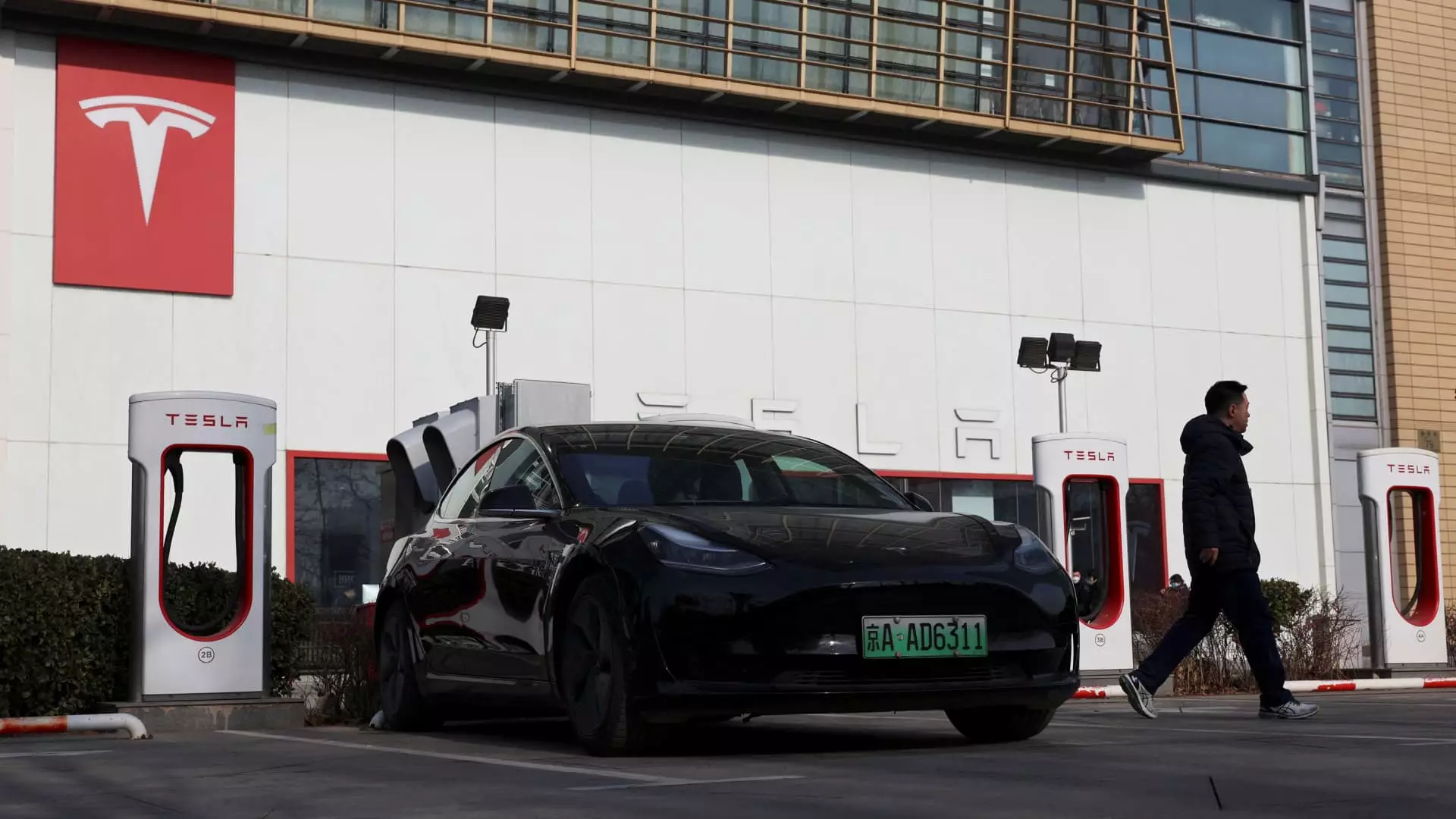In recent years, China’s automotive market has witnessed seismic shifts, particularly within the electric vehicle (EV) segment. With local brands rapidly gaining traction and traditional foreign automakers finding it increasingly difficult to navigate this fast-evolving terrain, the dynamics are poised for further transformation as we approach 2025. As we dissect the current landscape, it becomes clear that companies like BYD and Geely are not just key players; they are likely to become pillars of strength in the burgeoning EV market.
BYD’s ascent to prominence within the Chinese automotive industry is nothing short of remarkable. As of October 2023, the company has captured a staggering 16% of the nation’s automotive market, a notable increase from 12% the previous year. Such growth is indicative of BYD’s market strategy, which effectively combines affordability with innovation, catering to the diverse needs of the Chinese consumer. According to analysts from Nomura, this trajectory is expected to continue, with projections indicating that BYD will consolidate its market position even further in the coming years.
One telling aspect of BYD’s success is its ability to outpace even Tesla—arguably the most recognized name in electric vehicles. The third quarter of this year marked the first occasion in which BYD’s revenue surpassed that of Tesla, suggesting that local consumers are becoming increasingly confident in domestic brands. Even though Tesla maintains a stronger footing in battery-only vehicles, BYD’s lineup, which includes a significant portion of hybrid models, resonates well with a pragmatic market seeking a balance between price point and technological advancement.
While BYD’s market share is climbing, foreign rivals like Tesla are encountering obstacles. Reports indicate a 4.3% decline in Tesla’s sales in China year-over-year, standing in stark contrast to BYD’s remarkable 67% surge in the same timeframe. This trend highlights a paradigm shift in consumer preferences, steering clear of high-end international options in favor of competitively priced domestic alternatives.
Geely, another heavyweight in the Chinese auto sector, illustrates an alternative route to success in this competitive landscape. With an 8% share of the market, Geely is set to grow its sales by an anticipated 22% in 2024, reaching approximately 2.6 million units. Analysts from HSBC have identified Geely as being on track to meet its ambitious production targets, particularly with the introduction of new models that promise greater penetration into the EV segment. The company’s strategic acquisition of brands like Volvo has not only diversified its portfolio but also elevated its technological capabilities to appeal to a broader customer base.
The camaraderie between Geely and its subsidiaries, like the U.S.-listed electric car maker Zeekr, demonstrates how synergistic relationships can bolster industry resilience against foreign competition. As these local entities continue to capitalize on evolving consumer demands and trends towards sustainability, their collective strength could challenge the dominance of established international players.
In stark contrast, traditional automakers are grappling with what seems to be an insurmountable challenge in the wake of the electric vehicle revolution. Automakers such as General Motors are working diligently to restructure their operations in China, witnessing the costly consequences of a delayed pivot to newer technologies. The combination of high operational costs, declining market share, and changing consumer preferences has left many foreign manufacturers in a vulnerable position. Joint ventures, such as SAIC GM Wuling, are struggling to remain relevant, with market capture dwindling from 6% in the new energy segment to a mere 3%.
While established companies confront various hurdles, emerging startups are beginning to carve their niche in a rapidly shifting market. Companies like Yongda are positioning themselves effectively within the ecosystem, serving multiple brands and capitalizing on the rising awareness of non-traditional vehicle producers. The synergy between tech giants and automotive start-ups also serves as a critical factor, with collaborations presenting opportunities for consumer engagement on multiple fronts through innovative technology and connectivity.
In recent findings, analysts from Citi have recognized the efficient operations of newer entrants like Leapmotor, which, in contrast to their peers, have kept research and development expenditures in check. This frugality offers a fascinating perspective on how agility and strategic resource allocation can fuel growth and future viability in a fiercely competitive arena.
Ultimately, the future of electric vehicles in China appears to be firmly in the hands of local companies. With significant market consolidation anticipated, foreign brands must reconsider their strategies if they hope to remain relevant in this dynamic landscape. As brands like BYD and Geely continue their upward trajectory, the long-standing dominance of traditional automakers may soon become a thing of the past.
By embracing innovation, prioritizing consumer needs, and efficiently managing resources, these companies are defining the path forward in an industry reshaped by rapid advancements and changing consumer sentiments. As we move closer to 2025, it will be crucial to monitor how these emerging and established players adapt in this volatile yet promising market.

